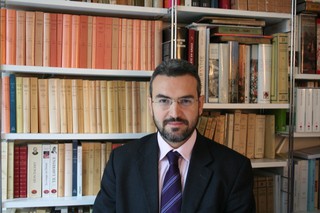 Aymeric Chauprade, docteur en sciences politiques, savant de renommée internationale, l’un des spécialistes de pointe de la géopolitique en France, assigne à la Russie un rôle de première importance dans la mise en place du monde moderne. En quoi la croissance de l’influence russe est-elle liée à la renaissance de l’Orthodoxie ? Comment notre pays peut-il aider les chrétiens persécutés du Moyen-Orient ? Comment son rôle particulier est-il lié aux protestations récentes de millions de Français contre le mariage homosexuel ?
Aymeric Chauprade, docteur en sciences politiques, savant de renommée internationale, l’un des spécialistes de pointe de la géopolitique en France, assigne à la Russie un rôle de première importance dans la mise en place du monde moderne. En quoi la croissance de l’influence russe est-elle liée à la renaissance de l’Orthodoxie ? Comment notre pays peut-il aider les chrétiens persécutés du Moyen-Orient ? Comment son rôle particulier est-il lié aux protestations récentes de millions de Français contre le mariage homosexuel ?
C’est là le sujet de notre discussion avec Aymeric Chauprade.
La foi et l’argent
Thomas : qu’est-ce qui attire particulièrement votre attention dans la Russie d’aujourd’hui ?
Aymeric Chauprade : Je comprends pourquoi, pour les Français de ma génération ou même plus jeunes, la Russie est si attirante aujourd’hui, et pourquoi les gens apprennent le russe et déménagent ici pour y fonder leur propre affaire. Ce n’est pas une sorte de phénomène marginal, le flot de ces gens est de plus en plus significatif. Ils ne sont pas, bien sûr, des dizaines de milliers, mais ils sont nombreux. Et ce phénomène est nouveau. Avant, les jeunes gens partaient aux U.S.A., brûlaient du « rêve américain ». Et maintenant, vient le remplacer le « rêve russe ». Et il est lié, à la différence du rêve américain, non aux aspects matériels et financiers, mais ce qui est plus important, à la recherche de soi, en tant qu’homme, à un retour aux sources chrétiennes. Pour la plupart des Européens, qui se réfèrent à leur culture chrétienne, la Russie incarne de plus en plus une sorte de contre modèle de l’Europe, en ce qui concerne les valeurs familiales et spirituelles.
Thomas : C’est étonnant, vous avez, pour un étranger, une idée si flatteuse des Russes…
A.C. : Bien sûr, les Russes participent à la société de consommation comme tous les autres dans le monde entier. Mais tout de même, ici, en Russie, on rencontre chez les gens quelque chose de profond, (peut-être la « mystérieuse âme russe » ?), la conviction que l’argent n’est pas dans la vie la valeur suprême. Et cela est vraiment attirant pour les jeunes Français, ceux du moins qui se trouvent en quête de plus profond que l’élargissement de leurs possibilités matérielles. C’est paradoxal, mais c’est un fait. Je vois d’un côté, en Russie, quelque chose de très proche de la culture américaine : le besoin d’amasser, le désir de déballer son niveau de réussite. Mais d’un autre côté, il y a là quelque chose qu’on ne trouve pas dans la culture américaine : si l’on fait connaissance avec un Russe d’une façon moins superficielle, on s’aperçoit que mise à part la soif de réussite, il y a en lui le désir de se trouver lui-même : « Qui suis-je et pourquoi est-ce que je vis » ? Et à mon avis, cela est directement lié en premier lieu au retour des Russes vers la religion, en partie à l’Orthodoxie. C’est une renaissance religieuse, le besoin de restaurer le lien du présent avec toute l’histoire russe. Je n’idéalise pas, cela plane dans l’air et se sent clairement. C’est seulement une réalité qu’on peut constater.
Thomas : Et que s’est-il donc passé pour que la Russie soit brusquement devenue attirante aux yeux des étrangers sur le plan des affaires ? Qu’est-ce qui a changé ?
A.C. : La façon de considérer la Russie a changé. Quand on disait « la Russie » dans les années 90, on comprenait la mafia. Et cela faisait peur de venir travailler ici et y investir de l’argent, on pouvait tout perdre d’un coup. Mais de telles associations n’existent plus. Les gens ont senti que sur le plan économique, ici, c’était maintenant sans danger. Il existe une différence colossale entre le tableau que tracent de la Russie les médias pro-américains et ce que connaissent de la Russie les analystes économiques. Les premiers considèrent tout ce qui est lié à la Russie d’une façon strictement critique.
Les seconds regardent les choses d’une façon lucide et réaliste et savent qu’en Russie, toutes les conditions sont rassemblées pour y conduire des affaires. J’ai personnellement entendu dire lors d’une conférence au directeur d’une compagnie française très importante : « Avant, nos entrepreneurs allaient en Chine, mais en réalité, personne n’a rien pu y gagner, à part les marques de luxe. Aujourd’hui, les compagnies françaises importantes gagnent beaucoup d’argent en Russie. Celui qui investit ici fait de bonnes affaires ».
La comparaison avec la Chine est vraiment intéressante. Il y eut en effet la période du boum chinois, les Européens ont pris pied dans le marché chinois, et au début, semblait-il, les bénéfices croissaient à des rythmes extraordinaires. Mais la différence entre les cultures est telle que les gens tombaient dans une véritable frustration et sortaient de ce marché : ils ne parvenaient pas à être « chez eux » dans cette civilisation, ils restaient de toute façon « étrangers » en Chine. Alors que les Russes et les Français, malgré toutes les différences sont en fin de compte très proches.
Thomas : En quoi la renaissance économique du pays est-elle liée au retour des Russes vers la religion ?
A.C. : J’ai rencontré des Russes qui sont matérialistes à 100 %. Mais j’ai aussi rencontré personnellement ceux qui gagnent beaucoup d’argent mais se souviennent qu’il y a quelque chose de plus grand que l’argent, par exemple le salut de l’âme. Ces entrepreneurs qui sont loin d’être pauvres décident à un certain moment de dépenser une partie (parfois importante) de l’argent gagné pour financer des projets liés à l’Église, à l’éducation, à l’illumination, afin que les gens viennent à la foi en Dieu. C’est à mes yeux très important. À ce propos, cela existe aux U.S.A., dans les milieux protestants. En France, justement, cela nous manque beaucoup, peu de gens qui, ayant gagné beaucoup d’argent voudraient l’affecter à la cause de la renaissance de la religion et des valeurs spirituelles. De mon point de vue, c’est la maladie gravissime de l’Europe Occidentale contemporaine.
Rattraper et dépasser l’Occident ?
Thomas : Quelles sont vos impressions personnelles de votre participation au club de discussion « Valdaï » en septembre 2013 ?
A.C. : Honnêtement, j’en garde des sentiments mitigés. D’un côté, j’ai été impressionné par le niveau du déroulement de l’évènement lui-même, la diversité des experts très intéressants et l’organisation intelligente des discussions. Mais ce qui me troublait d’un autre côté, c’est que la philosophie générale de « Valdaï » est pénétrée de part en part par la vision du monde occidentale et libérale. J’avais l’impression que toute une classe de politiques russes, rassemblés à Valdaï, pas tous mais la majorité, essaie de dépasser l’Occident sur le plan des valeurs libérales. Et ils essaient de le faire de telle manière que la Russie reçoit ces valeurs comme la norme. D’après moi, c’est étrange. La Russie sur le plan spirituel et culturel a toujours suivi son propre chemin historique, et elle a aujourd’hui la possibilité de créer son propre modèle de civilisation sans copier l’Occident. Cela sonnera peut-être comme une provocation, mais quand à Valdaï j’ai entendu certains politiques, j’ai eu l’impression qu’ils se sentaient comme des représentants d’un pays du tiers-monde, et tentaient de toutes leurs forces de se montrer à leur avantage devant l’Occident « civilisé », comme pour dire : « Nous aussi, nous avons le progrès, regardez comme nous sommes libéraux. » Comme s’ils étaient des élèves, et que de l’Occident étaient venus des professeurs qui leur disaient avec condescendance : « Eh bien que voulez-vous, il vous faut encore, bien sûr, travailler à la lutte contre la corruption, à la défense des droits des minorités. Vous avez bien sûr fait des progrès particuliers, mais ce n’est quand même pas suffisant. » Et les savants russes, s’excusant, répondent : « Oui, oui, oui, nous allons essayer, nous allons grandir. » Je considère que la Russie mérite mieux.
Thomas : Mais il y vraiment en Russie de grands problèmes de corruption, tout le monde le sait…
A.C. : Je ne veux pas dire qu’en Russie tout soit rose. Je dis que dans les questions de civilisation et de culture, la Russie a ses réalités historiques, et il n’y a pas de nécessité à l’évaluer toujours sur le fond des pays occidentaux. Il va sans dire qu’en Russie, comme dans tout autre pays, il y a des problèmes. Il faut lutter impitoyablement contre la corruption, Mais soit-dit en passant, elle existe aussi de la corruption en Occident.
Thomas : Est-ce possible ?
A.C. : Le fait est que les critères pour déterminer le niveau de corruption de tel ou tel pays sont établis et installés par des agences occidentales et que d’après leurs estimations, en France, en Allemagne ou aux U.S.A. la corruption, cela va sans dire, ne peut exister. C’est pourquoi je ne prendrais pour preuves leurs estimations qu’en Russie tout va mal qu’avec prudence. J’affirme qu’en Europe, la corruption existe aussi. Peut-être n’est-elle pas aussi voyante, aussi criante, mais elle existe. Elle est seulement cachée, masquée, exprimée d’une autre manière que « Je te donne l’argent, tu me fais le contrat ». Dans le cas de l’Occident, il est plutôt question d’une corruption de l’esprit, du caractère des gens eux-mêmes. C’est une sorte de profonde corruption morale, exprimée en cela qu’on a complètement exclu Dieu de notre vie. Mais personne n’a parlé à Valdaï de cette corruption fondamentale du monde occidental.
Il faut défendre les chrétiens
Thomas : Pourquoi les persécutions de chrétiens au Moyen-Orient sont-elles devenues si cruelles ces derniers temps ?
A.C. : En fait, les chrétiens du Moyen-Orient se trouvent depuis longtemps dans une situation de continuelle pression. La Turquie en est l’éclatant exemple. Au début du XXe siècle, huit pour cent de la population turque était chrétienne, et il est aujourd’hui question de quelques centièmes d’un pour cent. Il n’y a pourtant pas, en Turquie, de persécution physique des chrétiens. En revanche, on interdit l’enregistrement de nouvelles paroisses, et les gens sont obligés de quitter le pays d’eux-mêmes. En un mot, on essaie doucement et en silence d’étouffer le christianisme. Et c’est la situation générale des pays du Moyen-Orient.
Mais il y a une autre tendance, une relation ouvertement grossière et cruelle aux chrétiens. Cette tendance s’est activée particulièrement après la guerre d’Irak. Il faut malheureusement reconnaître que les guerres des U.S.A. dans cette région ont facilité à leur manière l’émergence du fondamentalisme islamique, en particulier sunnite. Que ce soit il y a quelques années en Irak ou aujourd’hui en Syrie, ce sont les mêmes extrémistes sunnites. Ils détruisent les églises, scient les croix, profanent les icônes et, bien sûr, éliminent physiquement les chrétiens, parmi lesquels apparaissent à nouveau de véritables martyrs. C’est pourquoi si le régime du président de la Syrie Bachar el Assad s’effondre, il est tout à fait évident que les persécutions ne feront que s’intensifier. En un mot, ces jeux politiques, cette union entre les U.S.A., la Grande-Bretagne et, à mon grand regret, la France, font les affaires des islamistes fondamentalistes dans leur lutte contre les chrétiens. Je souligne que je ne parle pas de l’islam dans son ensemble en tant que religion mais bien des fondamentalistes, c’est-à-dire d’un groupe particulier de gens aux dispositions guerrières à l’intérieur du monde musulman.
La Russie, dans la situation de la persécution des chrétiens au Moyen-Orient peut jouer un rôle vraiment historique, tout à fait dans le courant de toute l’histoire russe. Car au cours de nombreux siècles, jusqu’à la révolution de 1917, la Russie a été le défenseur assidu des chrétiens d’Orient. Et il est indispensable aujourd’hui, à mon avis, qu’elle redevienne ce défenseur. Il faut que la Russie qui se retrouve grâce au renouveau de l’Orthodoxie, envoie au monde le signal : « Nous sommes un État chrétien et les défenseurs des chrétiens. En dehors des chrétiens d’Orient, nous soutiendrons tous les chrétiens qui s’opposent à l’imposition des principes d’individualisme, au Diktat des minorités, à la légalisation du mariage homosexuel et ainsi de suite. Nous les soutiendrons pour défendre les valeurs traditionnelles ». De la sorte, ce sont précisément les valeurs traditionnelles qui deviendront la principale ressource russe, son principal outil, et feront de la Russie un acteur important de la politique mondiale. J’y crois et m’efforce de promouvoir cette idée de toutes les manières. Et je sais qu’en Russie, beaucoup considèrent que c’est justement dans cette direction qu’il faut avancer : s’engager dans l’éducation, expliquer le christianisme aux gens, pour devenir un État qu’on puisse appeler chrétien de plein droit.
Thomas : Le thème de la persécution des chrétiens est-il évoqué par les médias occidentaux ?
A.C. : Ça dépend. Dans l’ensemble, on peut dire que la tendance est de le minimiser. Mais la situation s’arrange petit à petit, car Internet apparaît comme une puissante source d’information alternative. Les ressources d’Internet rappellent aux principaux média traditionnels, par exemple, à des journaux français tels que Le Figaro ou Libération, l’état réel des affaires. Et quand de pareils médias ne disent rien d’un événement comme l’exécution de chrétiens à Maaloula, ces choses surgissent sur Internet, et les médias ne peuvent faire autrement que de les mettre en lumière. C’est pourquoi la situation évolue. Et de plus en plus de chrétiens en France se rendent compte que les chrétiens au Moyen Orient, par exemple les coptes en Égypte, sont réellement en danger.
La France se réveille
Thomas : En avril 2013, la loi sur le mariage homosexuel est entrée en vigueur en France, ce qui a suscité de massives actions de protestations de la part des défenseurs des valeurs traditionnelles. Qu’en pensez-vous ?
A.C. : Il s’est produit en France un événement d’une importance colossale. Bien sûr, auparavant, s’est produit un regrettable événement : la loi sur la légalisation du mariage homosexuel a été adoptée. La plupart des ministres, les socialistes et les « Verts », ont soutenu et soutiennent le mouvement en ce sens. Chaque jour que Dieu fait, pas à pas, ils s’efforcent avec persévérance de détruire l’aspect chrétien de la France contemporaine. Un exemple tout récent : ils ont promu la proposition de supprimer du calendrier français les fêtes chrétiennes pour les remplacer par des fêtes juives et musulmanes. Mais la société réagit quand même. Trois millions de personnes étaient dans la rue pour protester contre la légalisation du mariage homosexuel. Des gens d’âges divers, de bonnes familles, étaient prêts à manifester avec le risque d’être arrêtés, pour dire non à cette loi et défendre la seule conception normale de la famille. Sur ce point, il s’est produit quelque chose de très important. Bien qu’aujourd’hui la vague de protestation ait reflué, elle a enclenché tout un processus, ouvert la voie à tout un mouvement de résistance, comme si un ressort sur la porte s’était tendu sous la pression, la serrure avait été arrachée, et la porte s’était ouverte toute grande. Les gens savent maintenant qu’ils ont une plateforme où ils peuvent se rassembler pour défendre les valeurs familiales traditionnelles. En outre, il y a aussi d’autres directions de « combat » : la question de l’immigration, la question de l’islamisation etc. Je suis persuadé que nous assistons à un processus très important : le réveil des Français. Bien que pour parler d’une façon imagée, les forces du mal soient de toute façon très puissantes.
Thomas : Beaucoup sont persuadés que le mouvement pour la défense des valeurs traditionnelles doit prendre une dimension internationale. Que pensez-vous, sur ce point, d’une collaboration entre le France et la Russie ?
A.C. : C’est justement là-dessus que je m’efforce de travailler. C’est le thème qui m’occupe en permanence. Je suis persuadé que personne ne gagnera dans la solitude. C’est comme la lutte avec le nazisme; la menace était si forte qu’on ne pouvait la contrer qu’en s’unissant, et ce n’est pas par hasard que la Russie a trouvé un allié dans la Résistance française. Nous avons aujourd’hui devant nous une nouvelle forme de totalitarisme. Il n’est extérieurement pas aussi évident, il est masqué, il ne porte pas de casque militaire, mais c’est bien un totalitarisme, quoique rampant, on impose aux gens les valeurs libérales, on met en doute les concepts traditionnels de dignité de la personne, on pousse l’homme à se révolter contre Dieu, et en ce sens, le nouveau totalitarisme revêt des traits vraiment sataniques. Il faut opposer à ce totalitarisme une puissante résistance. Et si la Russie se déclare un État chrétien, et le défenseur des valeurs chrétiennes, cela deviendra justement une réponse, et la création d’un contre-modèle à ce que l’on impose aux gens en Occident. On le leur impose précisément. Je ne considère pas, par exemple, que la légalisation du mariage homosexuel réponde à une position sincèrement motivée des gens ordinaires dans les pays d’Europe. Non, c’est celle de la minorité au pouvoir qui cherche à imposer ses critères au peuple : ils ont fabriqué la théorie du genre qui « fonde » la légalisation des mariages homosexuels. Je suis sûr que les Européens de base eux-mêmes, comme d’ailleurs les Américains, n’en veulent pas. Et si on leur propose un contre modèle, ils l’adopteront. La Russie, en collaboration avec d’autres pays et organisations sociales qui soutiennent la famille traditionnelle peut le réaliser.
Thomas : Mais pourtant, comme les informations nous l’ont appris, bien que trois millions de Français soient sortis dans la rue, pas moins de 60 % de la population française, c’est-à-dire la majorité, soutenaient cette légalisation du mariage homosexuel. Et vous nous dites que ce n’est pas l’avis du peuple…
A.C. : Il faut parler ici de la logique de l’histoire de l’humanité en tant que telle. La majorité des gens, dans n’importe quel pays à n’importe quelle époque est malheureusement passive. C’est seulement un fait historique. Cela concerne n’importe quel peuple. Cela signifie que si un gouvernant inculque le mal, le peuple le reçoit et suit le mal. Si le gouvernant fait le bien, le peuple l’accepte et suit le bien. Cela ne signifie pas que la société est stupide, pas du tout. Simplement la plupart des gens vit au quotidien, s’occupe de ses affaires au jour le jour. Ce n’est pas mal, ce sont de bonnes gens qui éveillent en moi personnellement une vive sympathie. Mais on ne peut pas les appeler des citoyens conscients, on ne peut pas dire qu’ils réfléchissent à ce qui se passe dans leur État. C’est toujours une minorité qui est consciente, dans la société, et qui se bat et s’oppose. Elle va se battre, par exemple, pour la liberté de l’homme, ce qui, en fin de compte, veut dire la lutte pour le triomphe d’une vérité chrétienne. Ce schéma est valable pour toutes les sociétés. Rappelez-vous la Résistance française, dont les participants étaient bien sûr en minorité. Et même en U.R.S.S., il y eut de la même manière le mouvement des dissidents qui résistaient au régime soviétique, et pourtant les Soviétiques en majorité n’étaient pas des partisans du régime déterminés, la majorité simplement se taisait, nageait dans le sens du courant. Je le répète, telle est la philosophie de l’histoire. C’est la minorité active qui fait l’histoire, et la question est seulement de savoir quel choix elle va faire, dans le sens du bien ou dans celui du mal.
Thomas : N’êtes-vous pas seul de cet avis parmi vos collègues en France ? Le fait est que beaucoup généralisent, affirmant : « On considère en Occident… » Comme si l’Occident était quelque chose d’homogène, où l’avis des gens est unifié, et où les experts isolés, par exemple vous-même, vous êtes plutôt l’exception à la règle, le vecteur d’un avis marginal sur les choses. En quoi cela correspond-il à la réalité ?
A.C. : Je trouve important de le dire en Russie, dans une interview pour une publication russe. La réalité objective est la suivante : la majorité des gens en Occident ne réfléchit pas aux questions dont nous parlons maintenant. Et la minorité qui vit et travaille tous les jours avec ces questions se partage en deux groupes : le premier, ce sont ceux qui considèrent l’individualisme général comme la norme, et le deuxième, ce sont ceux qui trouvent indispensable de revenir aux racines chrétiennes. C’est là, je le répète, le tableau objectif. Ce sont ces deux minorités qui créent les partis et les organisations politiques. Ensuite, c’est la question du libre choix des citoyens aux élections. Pour parler de la France, il existe aujourd’hui un parti qui, d’après les analystes, dans un proche avenir deviendra le premier de France par sa popularité, c’est le Front national. Un parti qui se dresse contre le système existant. Ses partisans ne sont pas une minorité, c’est une partie notable des Français qui affirment l’importance des valeurs chrétiennes, la dignité de la personne, le danger de l’islamisation de la France, le refus de participer aux guerres des U.S.A., etc. Il ne convient donc pas de me considérer comme un bien grand original. Non, une grande quantité de gens, en France, raisonnent selon la même logique. Parmi les économistes, parmi les militaires. Si vous pratiquez un sondage chez les officiers, vous verrez que 30 ou 40 % d’entre eux sont disposés envers la Russie de façon très, très positive; beaucoup plus positive qu’envers les U.S.A. J’ai enseigné dix ans à des officiers, j’avais presque trois mille étudiants, je sais de quoi ils parlent et ce qu’ils pensent. Sans conteste, il est parmi eux des « atlantistes » des gens qui sont à cent pour cent pour l’O.T.A.N., qui raisonnent jusqu’à maintenant en termes de guerre froide; soi-disant, « les Russes sont d’affreux communistes ». Mais il y a une part significative d’officiers, particulièrement chez les jeunes, qui raisonnent d’une façon radicalement différente.
Thomas : Vous avez évoqué le parti « le Front national ». En Russie, la tendance est de craindre comme le feu les mots « national », « nationalité » etc. On confond le mot « nationalisme » avec le mot « nazisme ». Et tout ce qui est « national » entraîne une association directe avec fascisme, agression, génocide, camps de concentration, extermination physique des immigrés… Existe-t-il, d’après vous, un nationalisme pacifique et à quoi ressemble-t-il en pratique ?
A.C. : Il existe. L’exemple en est justement le Front national qui s’est déclaré dès le début comme un parti patriotique. Ce n’est pas un parti de nationalistes, si l’on comprend le nationalisme comme un synonyme d’agression. Le parti patriotique s’efforce de conserver le visage historique de la France, défend sa civilisation et sa culture contre les changements du système qui se produisent sous l’influence des étrangers. Il n’a jamais été question de chasser immédiatement du pays tous les immigrés. La question, c’est que le multiculturalisme nuit à la France dans un sens purement démographique, les gens qui sont arrivés des pays arabes et leurs enfants occupent de plus en plus la France et de ce fait, provoquent la guerre civile. Ce que nous voulons, c’est que les étrangers s’assimilent, c’est-à-dire deviennent proprement des Français. Cela peut naturellement être lié à l’adoption du christianisme. Mais pas forcément : celui qui trouve important pour lui de rester dans l’islam doit simplement connaître et accepter la culture française, ne pas obliger sa femme à porter le voile intégral, etc. C’est là le programme du Front national. On n’y trouve pas un mot sur le recours à la force contre les immigrés. En outre, parmi les députés élus à l’assemblée nationale il y a des Arabes, ce que peu de gens savent. Nous pensons simplement qu’une immigration trop abondante nuit à la France. Comme elle nuit à ces mêmes étrangers qui viennent en France
Je suis moi-même partisan du dialogue entre les civilisations. J’ai beaucoup travaillé et enseigné, par exemple au Maroc. J’ai pris parole à l’O.N.U. comme expert du Maroc. J’ai des dizaines d’amis et de collègues parmi les musulmans, je crois en une politique arabe de la France. Les pays arabes sont nos voisins par la Méditerranée. Nous avons d’excellentes relations avec eux. La seule chose que nous devions faire, c’est contrôler les flux migratoires. Car aujourd’hui, cela ne peut pas continuer ainsi. Autrement la société française va tout simplement exploser, parce que la prospérité du gouvernement va s’écrouler, beaucoup de jeunes étrangers viennent en France dans l’espoir de vivre des allocations.
Être ou avoir
Thomas : Vous parlez beaucoup de religion. Dans quelle mesure la religion, en tant que domaine fondamentalement non matériel, peut-être un facteur géopolitique ?
A.C. : La géopolitique comprend au minimum trois choses fondamentales : La première c’est la géographie physique, c’est-à-dire où et comment le pays se situe, qui sont ses voisins, son ouverture sur la mer, etc. La deuxième, c’est la géographie des ressources, le pétrole, le gaz naturel, etc. Et la troisième, c’est la géographie identitaire, comment les gens se voient, quelle est leur identité. C’est relié directement aux conflits ethniques et religieux, car l’identité religieuse est l’une des plus importantes pour l’homme. En ce sens, on peut réduire de façon imagée la problématique de la géopolitique à deux verbes principaux, qui, dans la langue française sont également des auxiliaires qui servent à constituer les temps, le verbe avoir et le verbe être. À travers le verbe être, l’homme définit justement son identité, c’est-à-dire qu’il répond à la question : « que suis-je en cette vie ? » Cela concerne les questions de religion : « je suis chrétien », « je suis musulman », « je suis juif ».
L’identité religieuse a une énorme signification, car elle définit le système de valeurs de cette personne concrète, la façon dont il va percevoir le monde alentour. Et au moment où il se définit et commence à voir le monde précisément comme cela et pas autrement, cela devient un facteur de géopolitique. Car l’homme ne vit pas seul au monde mais en relation avec les autres. En un mot, la religion du point de vue géopolitique n’est pas pour les gens une question de connaissance théologique, ni de vie spirituelle intérieure, mais de recherche de sa propre identité, la tentative de décider « qui je suis » et d’agir en conséquence.
Beaucoup considèrent qu’en géopolitique domine tout ce qui est lié au verbe « avoir » : qui a quelles armes, les ressources naturelles, les technologies etc. C’est bien sûr important, mais ce n’est pas le plus important. Car on ne va pas aller mourir pour du pétrole. En ce sens, c’est le verbe « être » qui occupe la première place : les gens sont prêts à faire la guerre s’ils défendent leur identité, leur vision du monde, ce qui leur est cher.
L’identité religieuse, je le répète, est pour l’homme en un sens la principale, parce que la façon dont voit ses relations avec Dieu, avec l’Absolu, avec les valeurs supérieures, détermine celle dont il va construire ses relations avec tout le reste du monde terrestre.
Thomas : Et quel rôle jouent la religion et la foi dans votre vie ?
A.C. : Je m’intéresse beaucoup à tout ce qui est lié au catholicisme dans le monde contemporain. Mais l’Orthodoxie me fascine, je sens en elle quelque chose d’originel, un christianisme pur qui n’a pas été obscurci, le reflet de la foi des premiers chrétiens. En Occident, nous le savons, ces notions se sont en partie perdues.
Je suis marié, j’ai quatre enfants. Et la religion est pour moi une chose centrale et vitale. Ce qui ne change rien au fait que je suis pécheur, que la force et la profondeur de ma foi sont moindres que je le juge nécessaire. La religion, c’est ce qui permet de rendre plus digne notre façon de vivre et de s’opposer aux séductions du monde, comme par exemple, l’argent et les belles filles, qui sont d’ailleurs très nombreuses en Russie. On ne tient que grâce à la foi, la foi en Celui qui est plus grand que tout cela.
• Propos recueillis par Thomas et mis en ligne sur L’Esprit européen, le 15 décembre 2013.



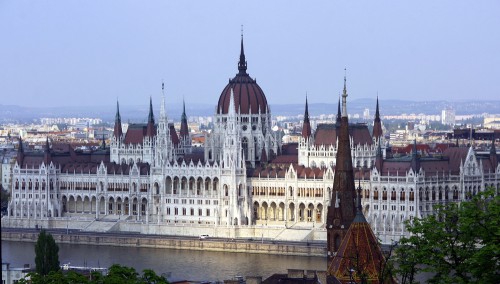
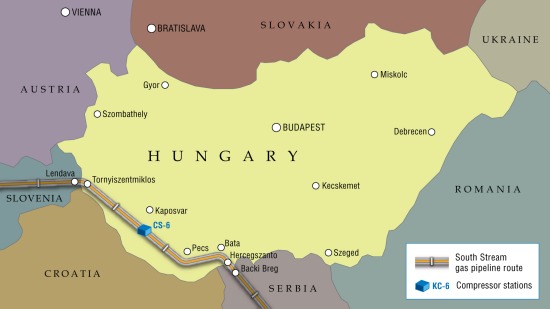

 del.icio.us
del.icio.us
 Digg
Digg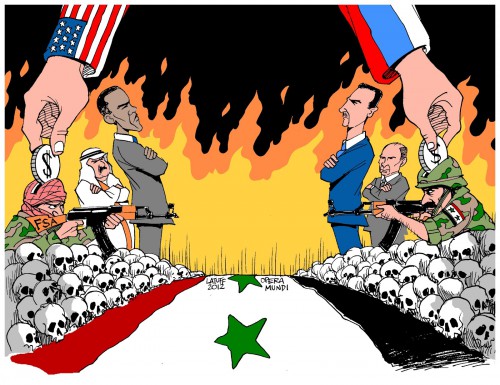




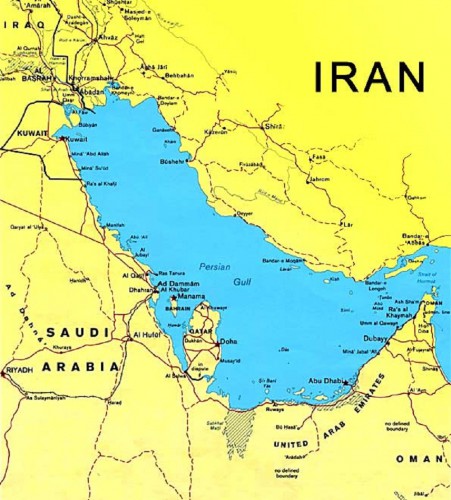


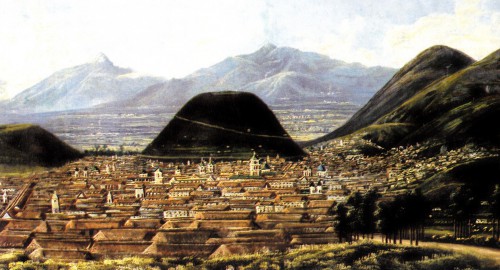

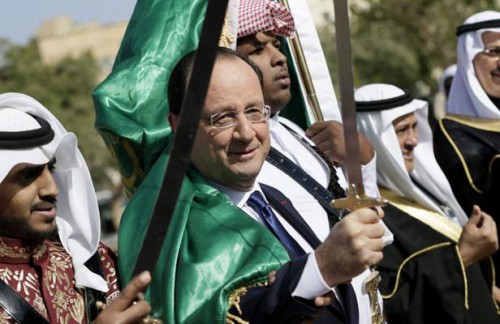

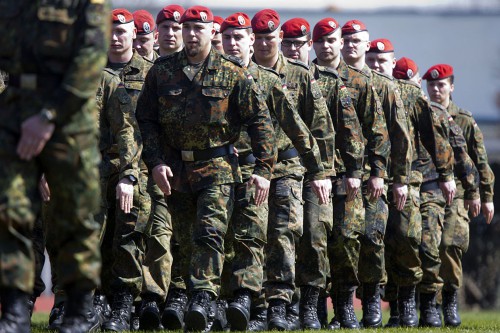
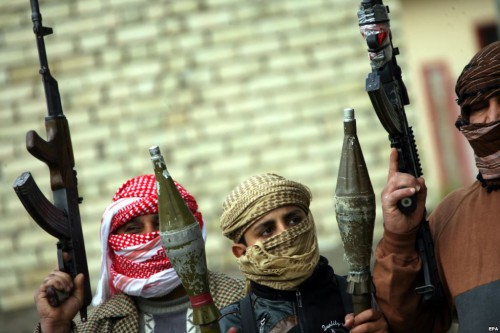
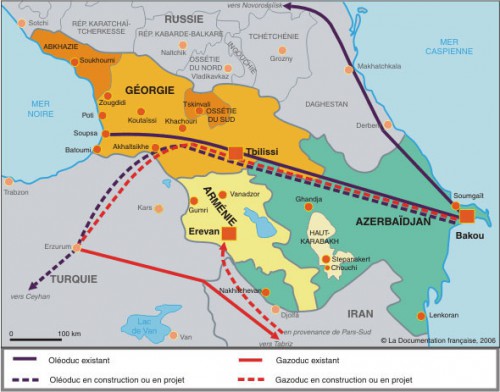
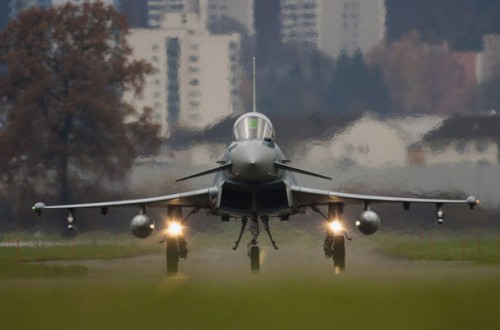


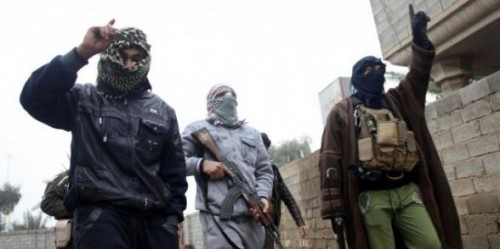
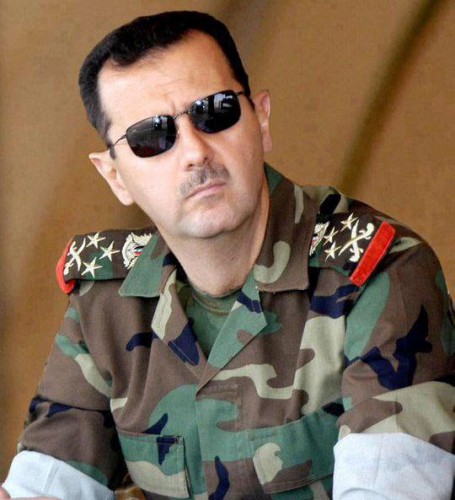

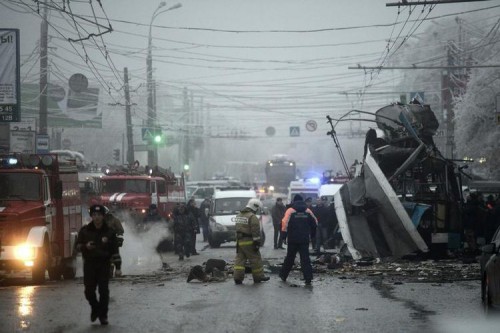



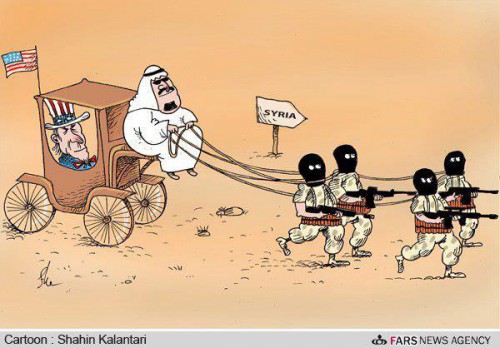
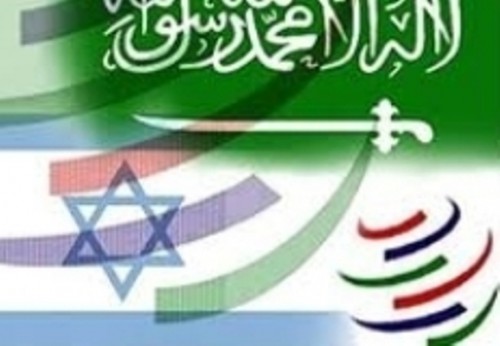
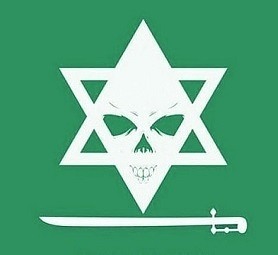
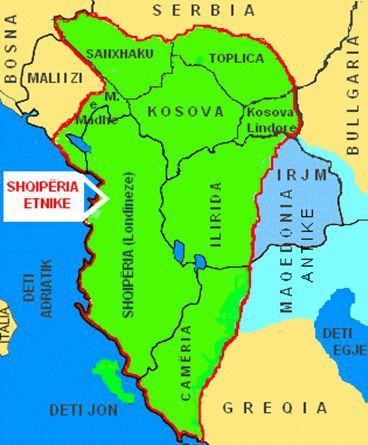 Au Kosovo, la situation reste tendue. Lors des élections communales du 3 novembre 2013, plusieurs bureaux de vote de Mitrovica ont été pris d’assaut, du moins dans la partie septentrionale de la ville habitée par des Serbes. Les urnes ont disparu. Avant que l’on ne passe au scrutin, les représentants des Serbes du Kosovo avaient appelé à un boycott des élections. Ils considéraient comme une trahison l’entente forgée ce printemps entre Belgrade et Pristina, à l’instigation de l’UE, parce que cet accord accordait peut-être une certaine autonomie aux Serbes mais prévoyait simultanément une déconstruction en règle de leurs structures parallèles.
Au Kosovo, la situation reste tendue. Lors des élections communales du 3 novembre 2013, plusieurs bureaux de vote de Mitrovica ont été pris d’assaut, du moins dans la partie septentrionale de la ville habitée par des Serbes. Les urnes ont disparu. Avant que l’on ne passe au scrutin, les représentants des Serbes du Kosovo avaient appelé à un boycott des élections. Ils considéraient comme une trahison l’entente forgée ce printemps entre Belgrade et Pristina, à l’instigation de l’UE, parce que cet accord accordait peut-être une certaine autonomie aux Serbes mais prévoyait simultanément une déconstruction en règle de leurs structures parallèles.